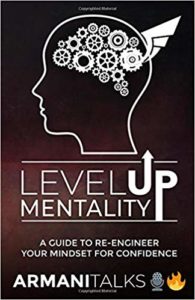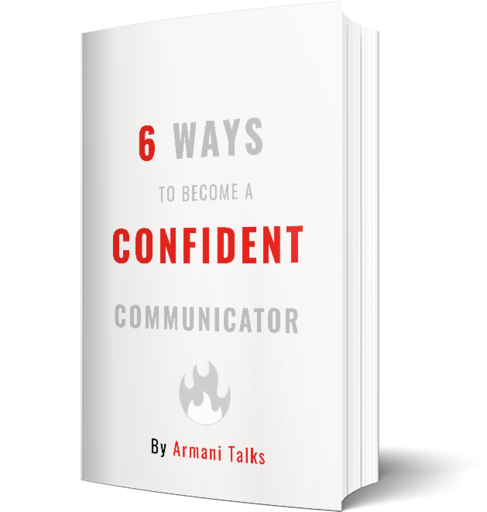4 Steps on How to Write a Reflection Paper
I used to think as an engineer, my goal was to fix things.
Fix, and call it a day.
Later on, I realized that wasn’t fully true.
With a lot of technology advancing at rapid rates, manual work is being taken out of the mix.
Nowadays, engineering is mainly about talking and clicking buttons.
Communication is at the centerfold of engineering.
After my team fixed something, we would have a thing called the:
- Root Cause Analysis call.
Where we would talk about why this problem occurred.
Other times, we would write:
- What could we have done better?
This was one of my first encounters with a reflection paper.
You may have encounters with reflection papers in:
- Business.
- Relationship.
- School.
etc.
In this article, you will be given a beginner’s guide on how to write a reflection paper.
What is a Reflection Paper?
A reflection paper is a breakdown from your perspective.
You may be wondering:
- Breakdown of what?
- And why am I writing from my perspective?
2 great questions.
Breakdown of what?
That depends on the scenario.
For my engineering job, I had to break down the issue and the fix.
For others, it may be a completely different topic.
I’ve heard of couples in therapy having to write a reflective paper on their partner’s annoying habits.
Why from my perspective?
The reason a reflective paper is from your perspective is because it allows you to draw unique insights.
During my reflection paper in my job, I said the reason we had the issue with the printers was because the job was monotonous.
When a job becomes monotonous, the employees wonder:
- Why is this needed?
By drawing on the perspective of the job being monotonous, that’s when I had the insight:
- Why don’t we automate it?
By breaking down a topic from your perspective, you will be able to draw insights on how to solve a problem.
How to Write a Reflective Paper
I’m a simple guy.
Therefore, I like to keep it simple.
For you to keep things simple, just add ‘for dummies’ at the end of whatever you are trying to simplify.
I’ll follow my advice:
How to Write a Reflection Paper, for dummies.
1. Choose a Topic
The topic sets the direction.
There are different topics you can choose from when learning how to write a reflection paper.
But if you were just starting off, I recommend following your emotions.
Not only the good emotions either…
Follow the dark emotions.
‘Why the hell would I willingly follow the dark emotions?’
The reason why is because that’s where there is a lot of information.
Let’s say for the most part, you’re a calm guy.
But with 1 particular thing…
It makes you livid.
Make that your topic:
- Why does X piss me off?
You’ll see why shortly.
2. Explain to Yourself
‘Who is my target audience?’
Your target audience is you.
This is a cheat code on how to write a reflection paper.
A lot of people make the mistake of writing for a crowd.
So, they write as a fake version of themselves.
Instead, just write to yourself.
To better do this, assume that you are going to throw away the writing once you are done with it.
This allows you to be in your own universe.
Now the creative faculties are awakened.

3. Don’t Focus Too Much on the Details, Yet
Let’s say your pet peeve is:
‘How come I get so furious when I don’t feel listened to?’
This sets the direction for your reflective paper.
Once you have the direction, just write.
Don’t plan anything out.
Planning too much will make you too analytical.
Save that for later.
Right now, you are writing to yourself.
If I were to create a sample (I’m not focused on spelling at the moment) my reflective paper would look like this:
‘I’km not sure why, but lsnot feelign heard psiseise me off. What mpssoeis me off more is when someoen ocmometpelty misnsoocntoirues my ememsage. Ratehr than rwnot askign for aclrifyting, they statt ofgign off on their msicosocmeptce. I belvie the reaosn for this is dueo to my childhood.. Since I couldnt’ seepak english that well groiwng up, a loto fo my teachers owul dspeakg up for me. They would leaproconouce my name for me and act like i dind’t HAVE A voice. This psesed me off, but I ewnet owitht eh flow . Nowdys as an audlt yI hate when that happens. to me. I bleive my teahcers are stil trying to put words in my htouth.’
I understand the above paragraph looks like garbage.
However, when I look back at it, I can read it.
Which brings me to my next point.
4. Clean Up
I love to edit in iterations.
First, I remove all the red lines (spelling mistakes).
‘I’m not sure why, but not feeling heard pisses me off. What pisses me off more is when someone completely misconstrues my message. Rather than not asking for clarifying, they start going off on their misconception. I believe the reason for this is due to my childhood.. Since I couldn’t’ speak English that well growing up, a lot of my teachers would speak up for me. They would pronounce my name for me and act like I didn’t HAVE A voice. This pissed me off, but I went with eh flow . Nowadays as an adult I hate when that happens. to me. I believe my teachers are still trying to put words in my mouth.’
Much better, but still not there yet.
For the next iteration, I polish up my writing as if others were going to read it.
‘I’m not sure why, but not feeling heard pisses me off. What pisses me off even more is when someone misconstrues my message. Rather than asking for clarification, they go on with their misconception. I believe the reason for this anger is due to my childhood. Since I couldn’t speak English that well growing up, a lot of my teachers would speak up for me. They would pronounce my name for me and act like I didn’t have a voice. This pissed me off, but I went with the flow. Nowadays, as an adult… I hate when someone doesn’t listen. It feels like my teachers are still trying to put words in my mouth.’
I made some tweaks.
I can keep tweaking until I feel satisfied.
That’s the general gist of the workflow:
- Choose topic.
- Explain to yourself.
- Write & don’t focus too much on the details.
- Focus on the details.
Congratulations my friend, you are on your path to learning how to write a reflection paper.
What to Write a Reflective Paper About
There are 2 philosophies in regards to writing:
- Write about what you know.
- Write about what you want to know.
For the example in this article, we followed the latter.
I have a pet peeve.
I wanted to know why this pet peeve exists.
Therefore, I gave myself a topic.
Then I systematically broke it down.
A lot of people hate writing because they turn it into a job.
They lose sight of the bigger picture by focusing too much on grammar, spelling, and punctuation.
Fool!
That comes later.
Focus on the ideas first.
Then it will be impossible to feel stumped while writing a reflection paper.
For more practical insights on how to become a better writer, be sure to check out:
- Get To The Point: A Beginner’s Guide to Essay Writing, Critical Thinking Skills & Logical Reasoning
In this beginner’s guide, you will learn:
- The different styles of essays out there.
- How to brainstorm an essay.
- The art of creating a rough draft.
- How to edit your work.
Along with plenty of other topics!
Grab a copy here:
Ebook
Paperback/Kindle
Audiobook
– ArmaniTalks 





